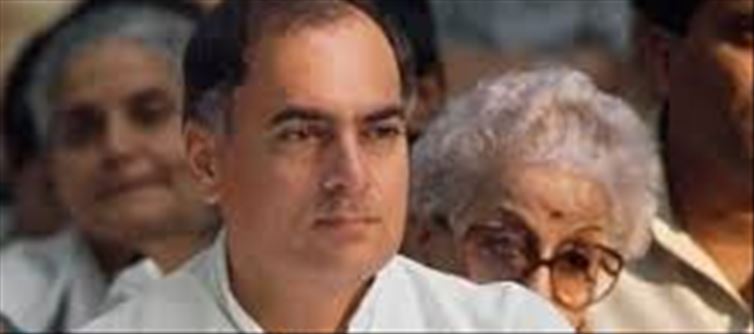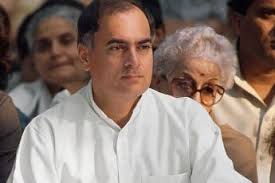
.jpg) The supreme court dismissed a review petition filed by the four seeking to reduce the death penalty to life imprisonment. The then governor of tamil Nadu Fathima Beevi announced that the mercy petitions of the four would be dismissed. The four convicts again approached the High Court. The high court said that the decision of the governor should be quashed and that the governor should take a decision on the decision of the Cabinet.
The supreme court dismissed a review petition filed by the four seeking to reduce the death penalty to life imprisonment. The then governor of tamil Nadu Fathima Beevi announced that the mercy petitions of the four would be dismissed. The four convicts again approached the High Court. The high court said that the decision of the governor should be quashed and that the governor should take a decision on the decision of the Cabinet..jpg) The cabinet headed by then chief minister Karunanidhi met to discuss the execution of the four. In it, a resolution was passed to reduce Nalini's death sentence to life imprisonment and recommended to the Governor. Perarivalan, Chandan and Murugan sent mercy petitions to the President. Under the circumstances, the petitioners filed a petition in the supreme court stating that the President had not yet decided on their clemency petitions.
The cabinet headed by then chief minister Karunanidhi met to discuss the execution of the four. In it, a resolution was passed to reduce Nalini's death sentence to life imprisonment and recommended to the Governor. Perarivalan, Chandan and Murugan sent mercy petitions to the President. Under the circumstances, the petitioners filed a petition in the supreme court stating that the President had not yet decided on their clemency petitions..jpg) On february 18, 2014, a bench headed by Chief Justice Sathasivam quashed the death sentences of Perarivalan, Murugan and Chandan and reduced them to life imprisonment. The apex court ruled that the state government could decide on the release of the three, who face further life sentences.
On february 18, 2014, a bench headed by Chief Justice Sathasivam quashed the death sentences of Perarivalan, Murugan and Chandan and reduced them to life imprisonment. The apex court ruled that the state government could decide on the release of the three, who face further life sentences.  Following this, the tamil Nadu government decided to release 7 Tamils serving life sentences in the rajiv gandhi assassination case on february 19, 2014. The government of tamil Nadu informed this to the Central Government. The federal government opposed this and went to the supreme Court. Is it up to the central government to release the lifers? State Government? The problem arose. On december 2, 2015, a bench headed by supreme court Judge Ibrahim Caliph ruled that Article 161 of the Constitution, which confers special powers on the state government. The State government therefore ruled that the approval of the central government was not required for the release of 7 persons under Section 161.
Following this, the tamil Nadu government decided to release 7 Tamils serving life sentences in the rajiv gandhi assassination case on february 19, 2014. The government of tamil Nadu informed this to the Central Government. The federal government opposed this and went to the supreme Court. Is it up to the central government to release the lifers? State Government? The problem arose. On december 2, 2015, a bench headed by supreme court Judge Ibrahim Caliph ruled that Article 161 of the Constitution, which confers special powers on the state government. The State government therefore ruled that the approval of the central government was not required for the release of 7 persons under Section 161..jpg) Judge Gokhale Bench ruled that the governor should make a decision under Section 161 of the Constitution regarding the release of 7 Tamils in 2018. On september 9, 2018, the government of tamil Nadu passed a resolution demanding the release of 7 Tamils. It was on this resolution that the governor of tamil Nadu lingered without taking any decision. The petition filed by Perarivalan in the supreme court seeking his release was heard. Why did the President send the decision of the governor of tamil Nadu to the government of tamil Nadu in 2018 without taking a decision during this hearing? As the judges raised various layered questions.
Judge Gokhale Bench ruled that the governor should make a decision under Section 161 of the Constitution regarding the release of 7 Tamils in 2018. On september 9, 2018, the government of tamil Nadu passed a resolution demanding the release of 7 Tamils. It was on this resolution that the governor of tamil Nadu lingered without taking any decision. The petition filed by Perarivalan in the supreme court seeking his release was heard. Why did the President send the decision of the governor of tamil Nadu to the government of tamil Nadu in 2018 without taking a decision during this hearing? As the judges raised various layered questions. The apex court also said that the state government has the power to release lifers. However, the central government has repeatedly argued that the release of the seven was in the hands of the central government as the case was being investigated by the CBI. The supreme court did not accept these arguments. The supreme court has already granted bail to Perarivalan. The tamil Nadu government has already granted parole for more than 9 months. In this context, the session of senior judge Nageshwara Rao has given a historic verdict saying that he will use his power to release Perarivalan.




 click and follow Indiaherald WhatsApp channel
click and follow Indiaherald WhatsApp channel